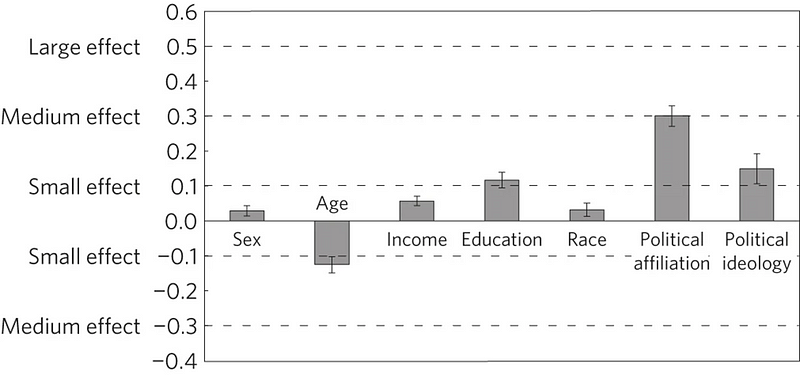Communicating Climate Change: Focusing on Core Values for Action
Written on
Chapter 1: The Challenge of Climate Communication
Addressing climate change with the public has proven to be quite difficult. Despite clear scientific evidence supporting human-induced climate change, many individuals remain unconvinced. This skepticism often stems from a perception that others are more credible sources of information. Research indicates that political affiliation is a significant predictor of one's belief in climate change, as individuals tend to trust those who share similar values.

Figure from Hornsey et al. (2016). Political affiliation significantly influences climate change belief.
While it is frustrating, I hold a firm belief that individuals across the political spectrum can unite on the urgency of climate change. Although there is a strong scientific consensus, social consensus remains lacking, particularly among conservatives. To bridge this gap, initiatives like newclimatevoices.org have been established, featuring targeted videos with notable figures such as a GOP congressman, a retired USAF member, and Dr. Katharine Hayhoe, an esteemed climate scientist and evangelical Christian.
The "New Climate Voices" initiative has demonstrated success in enhancing understanding of climate change among conservative audiences. Effective communication hinges on aligning messages with the values and identities of the audience. Establishing common ground is essential for fruitful discussions, as full societal engagement is crucial to achieving climate goals.
Section 1.1: The Impact of Media on Perception
Media narratives regarding climate change have predominantly emphasized long-term adverse effects such as rising sea levels and extreme weather events, which can leave audiences feeling anxious and powerless.
To counteract these negative emotions, I propose a shift toward messaging that highlights solutions rather than solely focusing on problems. While it is important to convey the urgency of the crisis, it is equally vital to celebrate the progress we have made in transitioning from fossil fuels to renewable energy.
Subsection 1.1.1: Acknowledging the Transition

I appreciate the contributions of the oil industry and its workforce to our nation's prosperity. However, the reality is that fossil fuels are a finite resource, and it is essential to pivot toward more sustainable, cost-effective renewable energy options.
Chapter 2: Minnesota's Renewable Energy Leadership
Minnesota is setting a precedent with its commitment to renewable resources, including wind, solar, hydropower, and biomass, which now account for the largest share of the state's electricity. This achievement can be traced back to the Next Generation Energy Act of 2007, enacted under former Governor Pawlenty. The state has unveiled a plan aimed at achieving 100% renewable energy by 2040, with significant commitments from major companies like 3M and Target. The two largest utilities in Minnesota, Xcel Energy and Minnesota Power, are also on track to become 100% carbon-free by 2050.
In conclusion, while discussing the tangible effects of climate change may not sway everyone's opinion, framing the conversation around its impact on personal values can foster understanding and action. My writing endeavors are not in vain; rather, they emphasize that expertise alone is insufficient for persuasion. Effective communication should prioritize how climate change resonates with core values—be it family, agriculture, or economic growth. Ultimately, political affiliations should not overshadow our shared aspirations for a sustainable future.